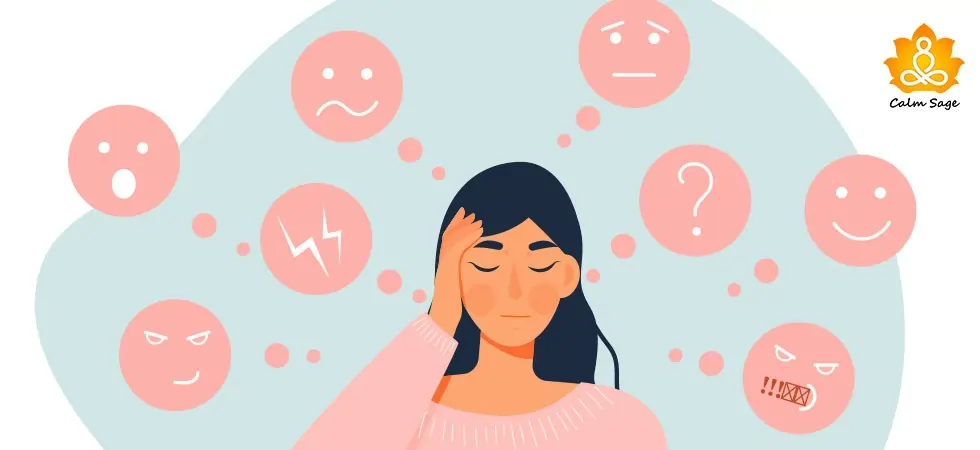10 Interesting Facts About Obsessive-Compulsive Disorder (OCD) You Should Know

Do you get the urge to write a crooked pillow? Do you feel as if you need to check your locks thrice before leaving the house? Obsessive-compulsive disorder is a mental and behavioral health disorder that causes a person to think intrusive thoughts and perform repetitive behaviors.
But that’s not all OCD is about! There are so many interesting facts about OCD. How many of them do you know?
Statistically, this chronic mental health disorder affects 1 in 10 people and is one of the top 10 most disabling disorders in the world. Below, I’ve listed 10 interesting facts about OCD that you should know!
10 Facts About OCD (Obsessive-Compulsive Disorder)

Fact #1: Obsessions And Compulsions Are Two Different Things
One of the common misconceptions about OCD is that obsessions and compulsions are the same things. This cannot be far from the truth. These two are a distinct part of the disorder. Obsessions are recurring intrusive thoughts while compulsions are repetitive behaviors. While many people with OCD have both compulsions and obsessions, many people only struggle with either of the two.
Fact #2: People With OCD Know Their Symptoms
People with OCD know about their symptoms, compulsions, and obsessions, contrary to popular belief. They know what they do, think, or feel does not make sense yet are unable to stop it. One of the difficult things about this disorder is the loss of control. People struggling with OCD often have little to no control over their actions and they know it. Yet, they are unable to regain control without professional help.
Fact #3: OCD Can Affect Anyone
Statistically, 1 in every 10 people struggle with OCD. There is no significant difference in the rate of OCD in women and men. This disorder can affect anyone regardless of their age, gender, trauma, etc. According to NIMH, OCD is usually developed during childhood and teenage years (9-19 y/o). Symptoms of OCD can manifest sooner but the onset of OCD after the age of 35 is rare. Genes, history of trauma, or chemical imbalance in the brain can also be responsible for OCD.
Fact #4: OCD Cannot Be Physically Diagnosed
If you have symptoms of OCD, then you should consult a psychiatrist or a professional psychologist. OCD cannot be physically diagnosed. There are no X-rays or blood tests that can help diagnose OCD. If someone says “I’m so OCD about this” or “This is my OCD” without proper diagnosis, it’s wrong. Your local physician can’t diagnose your disorder, only a trained professional can diagnose the disorder.
Fact #5: OCD Can Manifest In More Than One Way
One other myth about OCD is that this disorder only manifests in handwashing, checking locks, or counting. Not true! OCD can manifest itself in more than one way. Other compulsions and obsessions may include cleaning, arranging items, praying, counting backward, reciting dates or names mentally, etc. Remember, the obsessive-compulsive disorder can be focused internally too. It’s not always visible.
Fact #6: OCD Cannot Be Controlled Without Help
OCD not only impacts a person’s social or personal life but it can impact almost every aspect of a person’s life. A common myth about OCD is that people with this disorder can control it. OCD symptoms are not voluntary. No one with OCD wants to think intrusive thoughts or perform repetitive behavior. Distractions may work temporarily but in the long term, treatment and medications are the only things that can help.
Fact #7: Treatments Are Available For OCD
Primarily, there are two major treatment options to treat the symptoms of OCD. One is cognitive-behavioral therapy (CBT) which might include exposure therapy and the other is medications. Almost 70% of people with OCD experience relief in symptoms with just therapy and medications.
Fact #8: OCD Can Be A Co-Occurring Disorder
At least 90% of adults with OCD have, at some point in their life, struggled with another co-occurring mental health disorder such as depression, panic disorder, phobia, mood disorder, impulse control disorder, ADHD, and even addiction. The fact about OCD is that it can co-occur with other debilitating mental health disorders.
Fact #9: Too Much Stress Can Worsen Your OCD
Stress is the natural response when we are faced with a distressful situation. OCD is a chronic mental illness and it can get worse if you’re too stressed. Keeping your stress in control with the right stress management or relaxation techniques, you can prevent the symptoms of OCD from worsening.
Fact #10: People With OCD Can Live A Fulfilling Life
Another myth about OCD is that people with this disorder cannot lead happy and fulfilling life. While it is true that OCD may cause significant distress in one’s life – social, professional, and personal, with the right professional help, treatment, and medications, OCD can be managed and a person can live a fulfilling and happy life.
Final Words
OCD or obsessive-compulsive disorder is a serious mental and behavioral disorder that should not be taken lightly. People with OCD experience significant distress in their day-to-day lives. There is no cure for this disorder but, as I said, with the right treatment one can learn to manage the symptoms of OCD.
I hope the above-mentioned facts about OCD helped clear the common myths about OCD. If you’re experiencing symptoms of OCD, it is recommended you reach out to a professional for help. You can click here to connect with trained and licensed professionals.
For more, you can write to us at info@calmsage.com or follow us on social media. Like this blog? Let us know in the comments below!
Take Care!




















